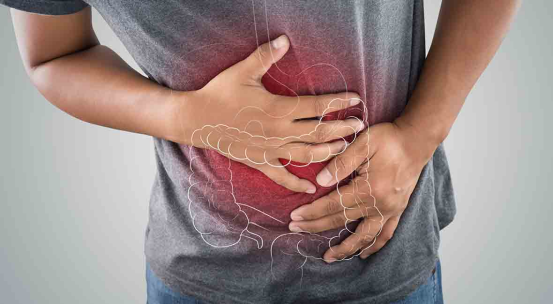
Digestive problems can be incredibly frustrating, affecting your day-to-day life and wellbeing. If you’ve been experiencing persistent abdominal pain, diarrhea, or fatigue, you might be dealing with one of two common inflammatory bowel diseases (IBD): Ulcerative Colitis (UC) or Crohn’s Disease (CD).
While these conditions share similar symptoms, they are distinct diseases that require different management strategies. Understanding the key differences between them could be the first step toward better managing your health.

What Is Ulcerative Colitis?
Ulcerative Colitis is a type of inflammatory bowel disease (IBD) that primarily affects the colon and rectum. In UC, the inner lining of the large intestine becomes inflamed, leading to symptoms such as:
- Chronic diarrhea, often with blood or pus
- Abdominal cramping
- Fatigue
- Urgency to have bowel movements
UC typically starts in the rectum and spreads upwards, affecting various lengths of the colon. The inflammation is usually continuous, meaning the affected areas are uniform rather than patchy.
What Is Crohn's Disease?
Crohn’s Disease is another form of IBD, but it can affect any part of the gastrointestinal (GI) tract, from the mouth to the anus. Unlike UC, Crohn’s causes inflammation that can occur in patches, with healthy tissue in between inflamed areas. Some common symptoms of Crohn’s Disease include:
- Severe abdominal pain and cramping
- Chronic diarrhea
- Weight loss
- Fatigue
- Fever
Crohn's is also known for affecting deeper layers of the intestinal walls, which can lead to complications such as strictures, fistulas, or abscesses. The inflammation in Crohn’s disease is typically irregular, which is one of the key factors that distinguish it from UC.
Key Differences Between Ulcerative Colitis and Crohn's Disease
- Location of Inflammation: UC only affects the colon and rectum, while Crohn's can occur anywhere in the GI tract.
- Pattern of Inflammation: UC causes continuous inflammation, whereas Crohn's leads to patchy, uneven inflammation.
- Depth of Inflammation: In UC, the inflammation is limited to the inner lining of the intestine. In Crohn's, it can affect all layers of the intestinal wall.
- Complications: Crohn's disease is more likely to cause complications such as strictures, abscesses, and fistulas, while UC can lead to colon damage and an increased risk of colon cancer if left untreated.
How Are They Diagnosed?
Both UC and Crohn’s Disease are diagnosed through a combination of:
- Blood teststo check for signs of infection or inflammation
- Stool teststo rule out infections
- Endoscopic procedures(such as colonoscopy) to visualize the affected areas
- Imaging testslike CT or MRI scans to assess the severity and location of inflammation
Treatment Options
While there is no cure for IBD, both UC and Crohn’s Disease can be managed effectively with medications and lifestyle changes. Common treatment options include:
- Anti-inflammatory drugsto reduce inflammation
- Immunosuppressantsto control the immune response
- Biologic therapiesfor more severe cases
- Surgery(in some cases) to remove damaged parts of the digestive tract
Take Control of Your Health
If you’re struggling with digestive symptoms and suspect you may have UC or Crohn's, it’s important to consult with a healthcare professional for a proper diagnosis. Understanding your condition is the first step toward managing symptoms and leading a healthier, more comfortable life.
Ready to Find Relief?
Don’t let digestive issues control your life any longer. Learn more about the differences between Ulcerative Colitis and Crohn's Disease and take proactive steps toward better digestive health. Seek expert guidance and discover personalized treatment options tailored to your needs today!







